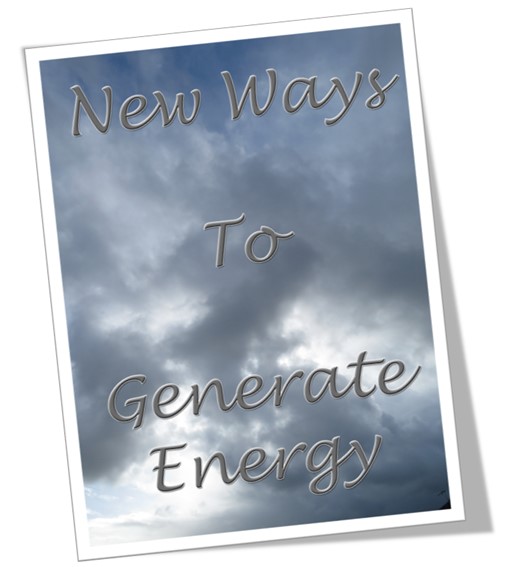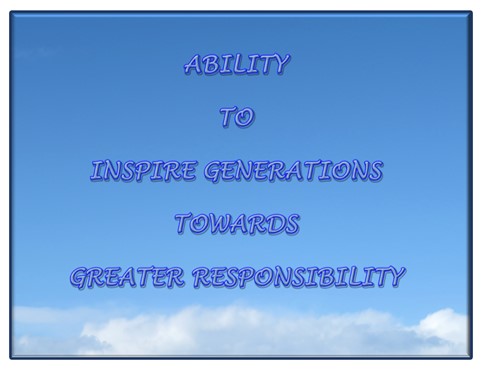New Ways To Generate Energy
Conversation With Chat GPT4 27 March 2024
Article Series: Energy

New Ways To Generate Energy Artwork
F McCullough Copyright 2024 ©
Energy Revolution
†Pioneering New Ways To
Generate Energy
The journey of human civilisation has been significantly
shaped by how we generate and use energy. From the rudimentary use of fire and
water mills to the complex, grid-based electricity systems of today, the
evolution of energy generation methods reflects our technological advancements
and changing environmental priorities. This narrative delves into the energy
revolution, comparing the traditional methods of the past with the innovative
technologies of the present.
Historical Context Of Energy Generation
In the past, humanity's energy generation methods were
largely based on direct, natural sources and manual effort, with a heavy
reliance on non-renewable resources as technology advanced.
Traditional Energy Sources
Wood and Biomass: For millennia, the
primary energy source was wood and other forms of biomass, used for heating and
cooking.
Coal: The industrial revolution marked the beginning
of intensive coal use, powering steam engines, factories, and later,
electricity generation plants.
Oil and Natural Gas: The 20th century saw a
shift towards oil and natural gas, fuelling transportation, industries, and
homes with higher efficiency and convenience, with significant environmental
costs.
Characteristics Of Traditional Energy Generation
Resource-Intensive: Relied heavily on
finite natural resources, leading to depletion concerns.
Environmental Impact: Contributed
significantly to pollution and greenhouse gas emissions.
Centralised Systems: Energy generation was
concentrated in large plants, requiring extensive distribution networks.
The Modern Energy Revolution
Today, we stand at the cusp of a new era in energy
generation, marked by a shift towards sustainability, innovation, and
efficiency.
Emerging Renewable Energy Technologies
Solar Power: Utilises photovoltaic cells to
convert sunlight into electricity, offering a clean, abundant energy source.
Wind Energy: Harnesses wind power through
turbines to generate electricity, capitalising on a renewable and widely
available resource.
Hydroelectric Power: Generates power from
flowing water, traditionally through large dams and now also via smaller, less
intrusive run-of-the-river systems.
Geothermal Energy: Exploits the earth's
heat for electricity generation and direct heating applications, with minimal
environmental footprint.
Biomass and Biofuels: Modern approaches to
biomass use organic materials more efficiently, converting waste into energy
and developing cleaner biofuels.
Characteristics Of Modern Energy Generation
Sustainability: Focuses on renewable
resources, which do not deplete over time and minimises environmental impact.
Decentralisation: Advances in technology
have enabled smaller, distributed energy generation systems, reducing the
reliance on centralised power plants.
Innovation and Efficiency: Continuous
technological improvements increase energy conversion efficiency and reduce
costs, making renewable energy more accessible.
Comparing Past And Present
The shift from traditional to modern energy generation
methods reflects our growing awareness of environmental issues and
technological capabilities.
Environmental Impact
Past: Heavy reliance on fossil fuels
contributed to significant air and water pollution and was a major source of
greenhouse gas emissions.
Present: Renewable energy technologies
offer cleaner alternatives, significantly reducing environmental footprints.
Resource Utilisation
Past: Focused on exploiting finite natural
resources, leading to concerns about depletion and sustainability.
Present: Emphasises renewable resources
like sunlight, wind, and water, which are abundant and sustainable over the
long term.
Technology And Infrastructure
Past: Centralised power generation required
extensive distribution networks, with significant energy loss during
transmission.
Present: Advances in decentralised and
micro-grid technologies allow for localised energy production and consumption,
reducing transmission losses and enhancing energy security.
Economic Implications
Past: The economy's heavy reliance on
fossil fuels made it vulnerable to price volatility and geopolitical tensions.
Present: The decreasing cost of renewable
energy technologies and the diversification of energy sources contribute to
greater economic stability and independence.
Summary
The energy revolution marks a pivotal shift towards a more
sustainable, efficient, and cleaner energy generation paradigm. By comparing
the past and present of energy generation, it's clear that technological
advancements and environmental consciousness are driving humanity towards a
future where energy is abundant and accessible, harmonising with the planet's
ecological balance. The transition challenges us to rethink our relationship
with energy, advocating for innovation, where sustainability leads the way.
Key Takeaways
This analysis elucidates the transformative journey from
traditional, resource-intensive energy generation to modern, sustainable
methods, emphasising the key role of technological innovation, alongside
environmental stewardship towards our bright energy future.
Conversation with Open AIís ChatGPT4 Reviewed, Revised and Edited by F McCullough, Copyright 2024 ©
Artwork

Modern Energy Generation Artwork
F McCullough Copyright 2024 ©
Links
Agriculture
Articles
Artificial Intelligence
Business
Ecology
Education
Energy
Finance
Genomics
Goats
Health
History
Leadership
Marketing
Medicine
Museums
Photographs & Art Works
Artworks, Design & Photographs Index
Other Photographs & Art Works By F McCullough
Places To Visit
Other Museums And Places To Visit
Plants
Poetry
Research
Science & Space
Science & Space Articles & Conversations
Short Stories
Songs
Technology
Thought Of The Day
The power of renewable
energy lies in its sustainability,
and in its ability to
inspire generations
towards greater
responsibility

Inspire Generations Artwork
F McCullough Copyright 2024 ©
Information
Image Citations
- New Ways To Generate Energy Artwork F McCullough Copyright 2024 ©
- Modern Energy Generation F McCullough Copyright 2024 ©
- Inspire Generations Artwork F McCullough Copyright 2024 ©
Table Of Contents
Pioneering
New Ways To Generate Energy
Historical
Context Of Energy Generation
Characteristics
Of Traditional Energy Generation
Emerging
Renewable Energy Technologies
Characteristics
Of Modern Energy Generation
Copyright
Keywords: adaptive leadership,
artificial intelligence, bioenergy, carbon capture and storage, circular
economy, clean energy transition, climate change, data analytics, digital
transformation, energy efficiency, energy storage, environmental stewardship,
ethical leadership, global energy markets, innovation, leadership skills,
renewable energy, smart technologies, stakeholder engagement, sustainability,
technological disruption, waste-to-energy, wind and solar power,
Hashtags: #adaptiveleadership,
#artificialintelligence, #bioenergy, #carboncaptureandstorage,
#circulareconomy, #cleanenergytransition, #climatechange, #dataanalytics,
#digitaltransformation, #energyefficiency, #energystorage,
#environmentalstewardship, #ethicalleadership, #globalenergymarkets,
#innovation, #leadershipskills, #renewableenergy, #smarttechnologies,
#stakeholderengagement, #sustainability, #technologicaldisruption,
#wastetoenergy, #windandsolarpower
Created: 27 March 2024
Published: 27 March 2024
Page URL: https://www.mylapshop.com/newwaystogenerateenergy.htm
